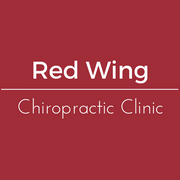Chiropractic Approach To TMJ Dysfunction

Your mandible (jaw) is held in place by the muscles and ligaments as it attaches to your temporal bone (the small skull bone above the ear). The joint that is formed by these two bones is called the “Temporomendibular joint” or TMJ for short.
In addition to allowing you to move your mouth in a normal way for purpose of eating and speaking, there are other important jobs performed by this very special joint.
Many dentists and doctors of chiropractic, for example have discovered that the blood circulation to the skin, pain fibers, muscles and internal tissues of the neck and head are strongly influenced by proper alignment of the TMJ. Misalignment (subluxation) of the TMJ can seriously affect the blood flow, muscle tension, spinal balance and the proper working of the nervous system in the upper body. This can result in many complex symptoms and ultimately disease, unless the misalignment is corrected by someone with special training and experience in this field of health care.
In the majority of cases TMJ problems are of a long standing nature, although injuries to the face, head, o neck can cause misalignment of the TMJ and the subsequent expression of the symptoms.
Due to the close and interrelated qualities of the TMJ and the upper spinal nervous system, the greater portion of TMJ problems are linked to misalignment of the vertebrae in the upper spine.
The integrated network of nerves between the TMJ and the upper spine forms a complex system which strongly influences the muscle tension, blood flow, organs of the upper chest, head, neck and face.
Doctors of chiropractic specialize in the evaluation and nonsurgical , drug free treatment of structural imbalances in the body, with special emphasis put on the spine and its effects on the nervous system. Typically with light adjustment with ultrasound and acupuncture either with or without needles you will begin to see improvements in 2-3 weeks.
Early Detection Of TMJ Dysfunction
- Do I have headaches which do not respond to medical treatment?
- Do I have unexplained dizziness, visual disturbances, or hearing difficulties?
- Do I have pain or stiffness in the jaw or temples?
- Do I feel frequent muscle tension and strain in my face, head, shoulders or upper chest?
- Do I suffer from unexplained tension, anxiety, depression, of high blood pressure?
- Do I have frequent sinus infections, bronchitis, or other respiratory symptoms?
- Have I been using sinus or cold medicine with little or no improvement?
- Have I been examined by my chiropractor or dentist recently and been told i have spinal misalignment or TMJ problems?
- Do I wear dentures that fit improperly and put pressure on my jaws in a painful way?
- Have I injured my jaw, face, head or neck and had symptoms of TMJ dysfunction or spinal misalignment that I ignored?
YES to 5 or more of these questions indicate that you may suffer from TMJ dysfunction/spinal subluxation syndrom
If you’re looking for more information or have problems with TMJ Dysfunction, turn to Red Wing Chiropractic Clinic PA. Call (651) 388-8294 to schedule a consultation or visit the website to learn more about their services.
About the Business
Have a question? Ask the experts!
Send your question

